Translations 677
Breastfeeding: a support for life

Breastfeeding: a support for life
By Posted on 31 July, 2016 – 17:00 by Raiza Arango Medina
Translated and edited by Walter Lippmann for CubaNews
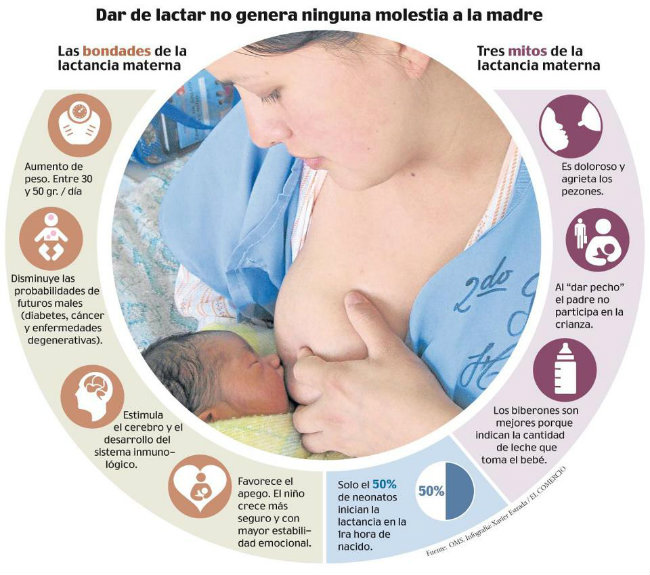
Benefits of breastfeeding. Taken from the internet
Breastfeeding is the first act of love given by a mother; moreover, it goes beyond the emotional connection established between her and her child.
It is scientifically proven that breast milk is the only food that children require for the first six months of life. “Any other type of drink, including water, would increase the risk of diarrhea or other illnesses. Exclusive breastfeeding is therefore the baby’s first immunization; there are no alternative formulas for its protection at the beginning of life,” said Dr. Roberto Álvarez Fumero, head of the Maternal and Infant Department of the Ministry of Public Health (MINSAP).
It is necessary to reiterate to Cuban women and their families the advantages of this universal and scientifically proven nutritional practice. Unfortunately, this ideal means of protection is not being used in an exceptional way up to six months of age by 70% of women, said Dr. Fumero.
In this sense, World Breastfeeding Week (August 1-7) is dedicated to promoting this practice as the optimal mode of nutrition in infancy. Its privileged use is based on the fact that human milk is composed of 88% water, a characteristic that facilitates the filtering function developed by the kidneys, so that the baby does not need to be rehydrated with any other liquid other than what the mother can offer.
A method of salvation
“Exclusive breastfeeding also means food security for children, because it can reduce hunger, malnutrition and obesity,” says the World Health Organization (WHO) in its campaign to promote this experience. In Cuba, actions are prioritized so that the whole society understands the goodness and countless benefits of this custom, which is an essential factor to achieve the Sustainable Development Goals in terms of health, explained the MINSAP specialist.
Earlier this year, the scientific journal The Lancet published a series of research studies, which show that increasing breastfeeding could save more than 820,000 children a year, nine out of 10 of them in the first months of life.
Fumero warned that infectious diseases are re-emerging in the world and there are others that -although our country has been able to control the hygienic-sanitary conditions that predispose them- continue to exist.
Its benefits for both parties are undeniable: it facilitates the development of the child’s intellect and protects it from possible chronic non-transmissible diseases; in women, it reduces the risk of hypertension, breast and ovarian cancer, postpartum depression, osteoporosis, and reduces weight gained during pregnancy.
The mother will help her health after childbirth with three balanced meals a day and two snacks; a nutritious formula sufficient to provide energy to the nursing mother.
According to studies, the amount of milk has nothing to do with the ingestion of beer or any other type of beverage perpetuated for generations as a stimulant to better flow the first food we receive in this world.
Similarly, Alvarez Fumero argued that investing in breastfeeding has a significant impact on the health of women and children and on the economies of families.
A guarantee from the start
Despite the persistence and vigilance on the part of MINSAP, Dr. Fumero stressed that Cuban mothers have to overcome a group of myths that unfortunately is passed on to several generations and more and more women are looking for a pretext not to breastfeed.
According to the Multiple Indicator Cluster Survey (MICS) conducted by the Ministry of Public Health between February and September 2014, only 33% of Cuban children received exclusive breastfeeding up to six months.
Regarding the issue, the scientist stressed that we cannot tolerate any excuse to stop breastfeeding when scientifically there is none that prevents it.
“This figure has a lot to do with cultural patterns in families that can be changed with the support of everyone, mainly family doctors, community organizations and the media,” Anna Lucia D’Emilio, representative of the United Nations Children’s Fund, once told the press.
For this reason, it is still a challenge to continue increasing actions to promote and encourage breastfeeding in Cuba, and this need is reflected in the MICS surveys, which indicate that 96.2 % of children born in the last two years have breastfed at some time. This percentage was 98% in 2011, according to these surveys.
According to the 2014 results, 48 % of infants breastfed within the first hour of birth, a figure that is also decreasing compared to the 77 % recorded in 2011.
Cuban medical institutions advise starting breastfeeding within the first hour after giving birth, breastfeeding exclusively during the first six months and continuing breastfeeding for two years or more.
The specialist concluded that guaranteeing optimal breastfeeding practices requires the support of the family and especially of the couple, who should share the mother’s sleepless nights and collaborate in every way. In addition, he added, it has been associated with long-term social behavior, which is more often adequate in those children who received exclusive breastfeeding.
By supporting and promoting breastfeeding, the nation complies with article 24 of the Convention on the Rights of the Child, which states that infants should enjoy the highest level of health.
In this sense, the specialist underlined the importance of having Human Milk Banks (BLH) in the country. These are currently located in eight provinces: Pinar del Rio, Havana, Matanzas, Las Tunas, Granma, Holguin, Santiago de Cuba and Guantanamo.
It is essential to emphasize that the BLHs are attended by mothers with their partners as it is part of the responsible motherhood that is intended to be transmitted in the country. At the end of 2015 in Cuba, 3 thousand 19 mothers became donors, and thanks to this, 738 liters of milk were collected, which benefited 1 thousand 285 newborns.
This August 4, bank number nine will be inaugurated at the Camilo Cienfuegos hospital in Sancti Spíritus, with the aim of helping in the survival of newborns, especially those born with congenital malformations and those who present malnutrition in the first stage of life.
About the author
Raiza Arango Medina
Graduated in Journalism at the Faculty of Communication of the University of Havana in 2014. Since then she has been dedicated to writing and research on social issues, aging and population dynamics. She is also one of the main editors of the Health page, specializing in topics related to health, science and technology. She has attended several postgraduate courses at the Center for Psychological and Sociological Research and at the International Institute of Journalism, related to the study of Cuban society.
The Challenge of Breastfeeding in Cuba

The Challenge of Breastfeeding in Cuba
By Rachel Pereda Punales
August 7, 2019
Translated and edited by Walter Lippmann for CubaNews.
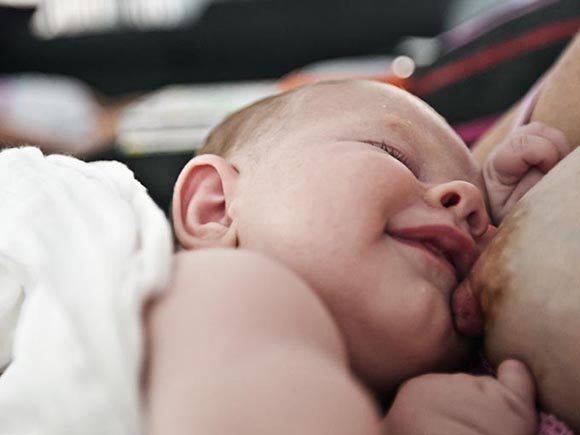
Breastfeeding, as a challenge, requires teamwork, a collective effort. Photo: Justin Paget/ Corbis.
Breast milk is the best food an infant can receive. It satisfies all the vital needs of the newborn, while also benefiting mothers.
“Breastfeeding is a social process and everyone must be involved. When the father, the family and the community intervene, the results will be better and represent a guarantee of health,” said pediatrician Pablo Carlos Roque.
The Coordinator of the National Breastfeeding Commission of the Ministry of Public Health (MINSAP) said that “in Cuba we have the opportunity for successful breastfeeding, but many parents do not take advantage of it. The family’s own lifestyles sometimes hinder responsible breastfeeding”.
For the pediatrician who also holds a Master’s Degree in Comprehensive Child Care, old feeding patterns ingrained in Cuban society are also incorporated into the baby. “Some people think that it is correct to start feeding the newborn at 15 days of age and then give him juices and other complementary foods,” he said.
“Favorable views still continue around cow’s milk and many think that the child will be stronger if he/she drinks it. That mistake is still present today. The best milk is mother’s milk and it marks a person for life,” he added.
According to the doctor, cow’s milk can cause diseases and many imbalances in the long term. “Our country is affected by ailments such as hypertension, diabetes, myocardial cerebral infarctions and all this has to do with early feeding”.
In this context, the specialist assured that breastfeeding is related to social inclusion and to the role played by the father from the moment of birth.
As an objective, the Island seeks to promote the early initiation of breastfeeding -in the first hour of life-, achieving the accompaniment of the father and his equal participation in parenting issues.
Similarly, there are other barriers to an optimal procedure, and among them prevails the lack of support for mothers, fathers and families at work.
Maternity leave in Cuba is at the level of the most advanced countries, but on many occasions, women are unaware of their rights as workers and the laws that protect them in the important work of caring for the new member of society, the pediatrician stressed.
The protection of breastfeeding and support to promote more flexible and family-friendly workplaces is also the responsibility of the workplace as part of this joint process.
“Not only maternity leave, but also paternity or parental leave, are important tools to stimulate adequate breastfeeding in the best conditions,” added Roque Peña.
The specialist also mentioned the importance of milk banks, a new experience for Cuba. “A mother who is able to donate raises her child better, will give it more time to breastfeed, and will have more milk in her breasts”.
In this scenario, the campaign ‘Empoderémonos, ¡Hagamos posible la lactancia materna!’ [Let’s empower ourselves, let’s make breastfeeding possible!] invites to reflect and act so that families assume this healthier lifestyle in all senses.
Breastfeeding, as a challenge, requires teamwork, a collective effort, an alliance that supports the couple in the difficult and surprising journey of parenthood.

Breastfeeding is, above all, an act of love for our children. Photo: Ivette Ivens
Taken from Prensa Latina
Lies, foul language and unimportant things

 THOUGHT
THOUGHT
Lies, foul language and unimportant things (+Video)
When Trump won the elections for the U.S. presidency in November 2016, Diario de Cuba was among the media outlets that broadcast a video where several Cuban “opponents” show their euphoria over that “resounding victory”
Translated and edited by Walter Lippmann for CubaNews.

Illustration: Cubainformación
On the same day that the declarations of Presidents Raul Castro and Barack Obama were made public, announcing a path towards normalization between the United States and the uncomfortable neighbor located 90 miles from the Florida peninsula, the website Diario de Cuba published false news about the [supposed] sinking, by the Cuban government, of a ship in the bay of Matanzas.
Dozens of people who were emigrating to the U.S. were supposed to have died. In the midst of the announcement made by both presidents, the main information of that day, the “news” of Diario de Cuba passed without pain or glory to the history of falsehoods fabricated by a publication that, since its origin, has received several million dollars from the National Endowment for Democracy (NED) for propaganda against the Cuban government.
The NED’s web page contains these figures, and the most recent one, published there, establishes the allocation for 2019 at $600,000. The nefarious role of the NED is not communist propaganda, even the not at all leftist newspaper The New York Times has established its condition as a screen for the CIA and its involvement in the financing of coups d’état in dozens of countries.
When Trump won the elections for the U.S. presidency in November 2016, Diario de Cuba was among the media that disseminated a video where several Cuban “opponents” show their euphoria for that “resounding victory”. Their words are eloquent:
(Trump) The man we need to get out of this whole situation (in Cuba).
We dragged all the communists with us.
In Cuba, almost all the people who suffer the consequences of the regime are happy (with Trump’s victory).
Women have suffered a lot during these two years of the reestablishment of relations between the U.S. and Cuba.
Obama, you are finally leaving.
It was very frustrating to see how the Obama administration was allowing the regime to gain space and leave the Cuban people and their demands aside.
We cannot do it alone (decide Cuba’s fate).
President Obama’s legacy regarding Cuba is not positive.
With the election of Trump, hopes are reborn in those who had lost them.
(With) the arrival of Trump to the White House we can rescue that ally we always had in the struggle for freedom in Cuba.
There is a magnificent juncture for all democratic actors in the region to have a unique triumph, which is to finally and totally overthrow the military dictatorship of the Castro brothers.
Now we have to work with those political actors who are thinking about a real democratization of Cuba.
Mario Díaz Balart, Carlos Curbelo, Marco Rubio, Ileana Ros, kisses, I love you all, gentlemen.
Congratulations from the bottom of my heart, and I say it with total joy, to the Cuban-American congressmen who are doing so much for the freedom of the Cuban people, I love you, I love you all so that you know and continue as you are going.
Such a background of the media, represented by one who wielded a cell phone in the face of the head of the Cuban Ministry of Culture, is a thing of no importance. Together with the correspondent, is shouting in his support someone who, against what he calls “pacification”. He has published in his social networks the need for a more economic blockade and a military intervention against Cuba. This is something that should not fail to be taken into account, because, more important is the way in which the Minister prevented the one paid by the NED from fulfilling his task: to weaken the Cuban position in any process of changing U.S. policy towards Havana, something Diario de Cuba has not ceased to advocate.
Those who say that a minister does not act like that in other countries are right. True: it is the police who “dialogues” -with clubs and water jets- against anyone who protests. Ultimately, it would be an escort who would undiplomatically put an end to any object unexpectedly placed in front of authority.
What would happen if the provocateur is paid by an agency historically associated with the efforts of a foreign government to change the current order in that country? One does not have to be very imaginative to imagine it, especially when every year journalists are murdered in double digits in the “democracies” around us.
That the libertarian correspondent insults, with all the repertoire of foul words in the Spanish language, the Minister that the private media system financed from abroad against Cuba has tried to lynch in the media, is not important either, much less if we take into account that, for this type of behavior, more than one rapper was sentenced to jail where Diario de Cuba has its headquarters: democratic Spain.
It is not very original either. The authorship of the insults belongs to another person who, in the 2016 video we mentioned before, was happy about the triumph of Trump and the anti-Cuban congressmen in Florida, exhibiting the emblem of the mercenary brigade 2506, defeated in Playa Girón, and requesting a tough hand with Cuba, precisely the one who expressed the tolerant phrase “We dragged all the communists”.
The correspondent of another media paid from the United States (ADN Cuba) acknowledges having received between $150 and $200 dollars for reporting from the Ministry of Culture on January 27, another unimportant thing.
This is who defends the model of free, democratic and independent press that Cuba must implement, nothing more: the yellow journalism that puts the superfluous in the foreground and hides the essential. Why be its unwitting victims, or worse, its accomplices, when what is really being demanded is not freedom of expression, but freedom for insults and lies turned into a business with foreign money?
To breastfeed is to love
To Breastfeed is to Love
August 5, 2015
Translated and edited by Walter Lippmann for CubaNews.
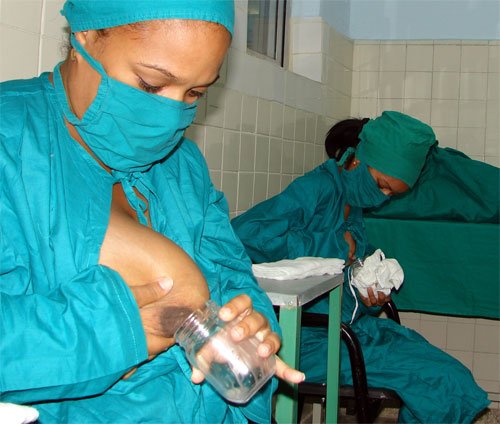 More than 600 liters of breast milk have been collected since the opening four years ago of the Mother’s Milk Bank of the Doctor Agostinho Neto General Teaching Hospital, the only one of its kind in the province, which have been distributed among hundreds of Guantanamo’s children, mainly those admitted for low birth weight.
More than 600 liters of breast milk have been collected since the opening four years ago of the Mother’s Milk Bank of the Doctor Agostinho Neto General Teaching Hospital, the only one of its kind in the province, which have been distributed among hundreds of Guantanamo’s children, mainly those admitted for low birth weight.
“Since last April, the collection was put into practice in the communities of the provincial capital, thanks to which there are currently about 125 donors, and only in July 15 newborns benefited from this important food,” said nurse Ada Lidia Leyva Crespo, head of this Bank.
Precisely because of the importance of exclusive feeding of newborns up to six months of age with this milk, the World Breastfeeding Week is being celebrated from August 1 to 7, which includes talks in the health areas, projection of audiovisual materials, dissemination campaigns, among other activities.
During the first six months of life, breast milk is the ideal food for children, since it provides all the nutritional substances necessary for healthy growth and protects them from infectious diseases, allergies, anemia and malnutrition; it also contributes to brain development, so it is not advisable to include other foods during this period.
Breastfeeding also helps to reduce bleeding after childbirth, to lose the fat acquired during pregnancy, prevents ovarian and breast cancer, and provides emotional satisfaction to the mother.
Support for Nobel Prize for Cuban Doctors

Lucía Topolansky: If I were on the Nobel committee, I would have no doubts about the award for Cuban doctors!
By Maribel Acosta Damas, Cuban journalist, specialized in Television. She is a professor at the Faculty of Journalism of the University of Havana and holds a Ph.D. in Communication Sciences. 
Translated and edited by Walter Lippmann for CubaNews.
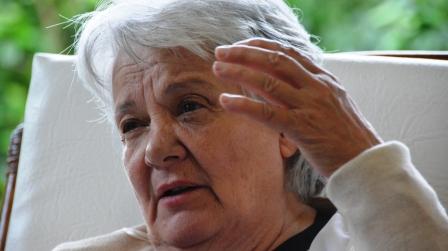
Photo: Courtesy of the interviewee.
Lucía Topolansky is the most voted senator in Uruguay. She was vice president of the Republic between September 2017 and February 2020, the first Uruguayan woman in that responsibility.
It is a symbol of the country, and not a fashion star. Guerrilla who was imprisoned, who escaped and was imprisoned again until the end of the dictatorship; tireless social fighter until today, empowered woman in the Frente Amplio government, companion in struggle and life since her youth of former Uruguayan president Pepe Mujica. Lucia is a simple woman, with straight words, a warm voice, an impressive chronological and affective memory; of life anecdotes, and plans, dreams and actions in her 76 years …
I met her years ago in Uruguay. Now the challenge was to interview her on WhatsApp. The dialogue flowed between the Havana neighborhood of La Víbora and La Chacra de Montevideo. Communications were excellent! A kind of plan A, B and C, as we are trained in Cuba, they gave us several copies of the recording, just in case … My son, a young music student put together a whole tech racket… he was still excited! And when the phone rang, she was on the other end of the line with her invariable River Plata accent:
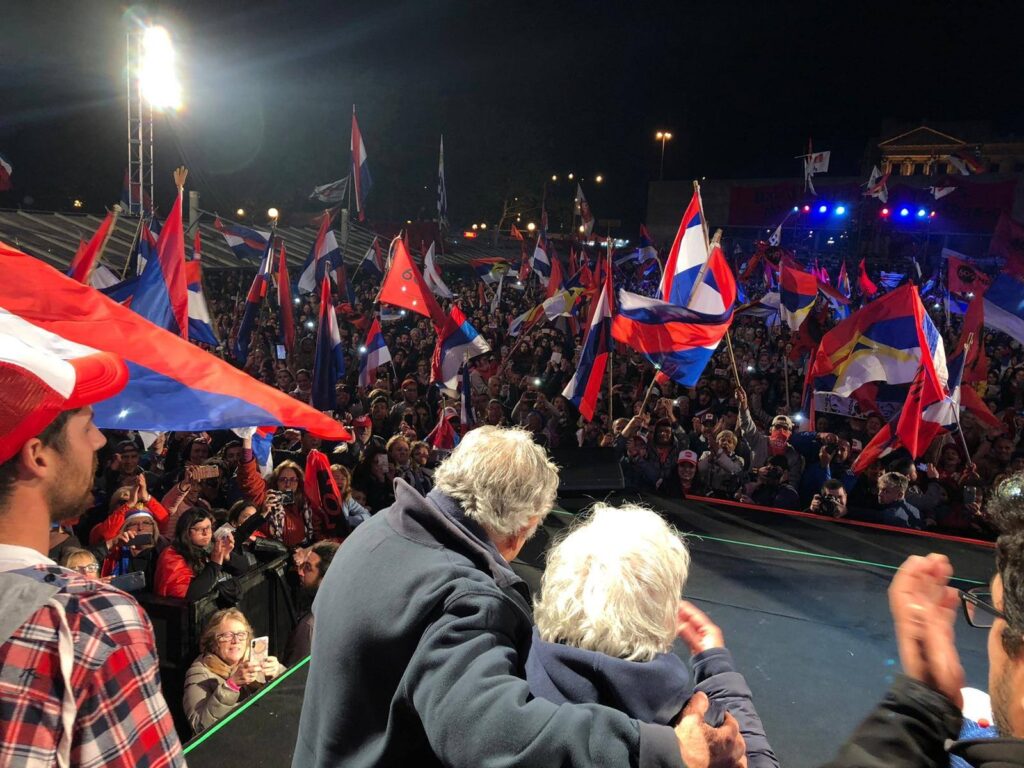
Photo: Courtesy of the interviewee.
Lucia Topolansky-. Hi, how are you?
Maribel Acosta Damas-. How are you Lucia?
LT-. Very good. Here we are working a little at home, because as I am 76 years old, I still cannot participate myself to all the legislative activity.
MAD-. And is he in good health?
LT-. My health is perfect, what I try is to avoid getting infected with the pandemic …
MAD-. And how is Pepe?
LT-. El Pepe is phenomenal! The problem that he has, apart from his 86 years, is that he cannot be vaccinated due to a previous disease that he had, so those of us around us have to take great care not to infect him because he has no chance, even with the vaccine, and on the other hand, the vaccine will take a while to arrive …
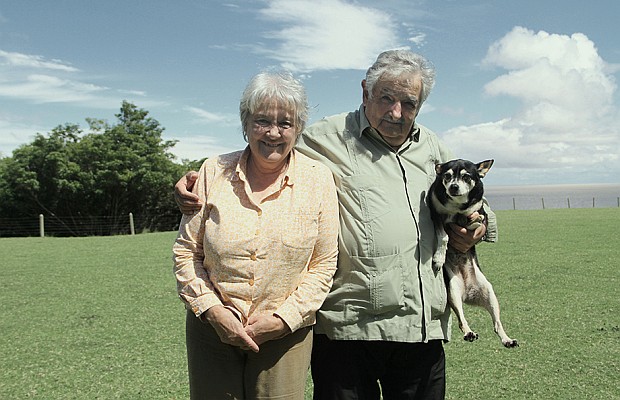
Photo: Courtesy of the interviewee.
MAD-. And how do you feel on the farm, are you very bored, because you are used to active social life?
LT-. No, I never get bored at home because I live in the rural area of Montevideo …
MAD-. … I was there with you in 2005…
LT-. Ah good!!! We here always have things to do. Now we have planted tomatoes, corn, sunflowers, we have chickens … There is always something to do here … The one who gets bored is because he is very clumsy … And later, with the computer, I work in the Parliament’s committees remotely, I do everything I can do with all those new zoom mechanisms that now exist and that … and I am following reality and we do some meetings in my house because we do them outdoors and from a distance, a few companions, but political activity is missed. We are now in the opposition and there are no demonstrations in the street, there is nothing. So it’s very, very difficult to keep up.
MAD-. And how are they handling the Covid issue in Uruguay?
LT-. From the health point of view, we have been quite good because our government left the current government with a very solid integrated national health system, which in Latin America is the one that invested the most in health with 9.5 percent of the Gross Domestic Product. That with a good computer platform that allowed telemedicine, helped a lot. We are also a country with little population.
Our biggest problem is the border with Brazil, which is where part of the pandemic and the people who came from abroad have come from. At the end of the year festivities, we had an increase in infections and now we are here in summer, that made the numbers of infections rise…
And what happened to the health system is that it lost the epidemiological thread. Now they are trying to take it up again and waiting to see if the world will deign to sell us a vaccine.That’s the reality. Derived from this, our biggest problem is not health, it is economic because there were many people who lost their jobs.
MAD-. In the midst of this complex scenario, you nominated Cuban doctors for the Nobel Peace Prize in 2021. How was this process?
LT-. We knew about the Cuban doctors program when it started. It caught our attention. We followed up. We saw what had happened in many African countries, in Pakistan and in other parts of the world. When in 2005 we won the government in Uruguay, the first delegation of Cuban doctors came here and there we met them live and direct. We met several delegations and they helped us to install an eye hospital because in Uruguay there is a quite aging population and one of the problems we have is cataracts. So the cataract operation was still not being done in Uruguay.
We were beginning to carry out health reform in the country; And the private ones charged a ridiculous amount, for each lens, for each operation! Then in an old hospital there was, the cataract operation was reformed and installed. The collaboration of the Cubans made it possible to perform almost 100,000 cataract operations and that was a marvel for the people who were practically blind, who had not met their grandson who had been born. That operation was called Operation Miracle. At the beginning, the operated ones traveled to Cuba but later the operation was done here, personnel were trained and that hospital is going very well.
MAD-. Does that hospital still exist providing ophthalmic services?
LT-. Yes, it still exists. The doubt we have now is that the opposition won the elections in 2019 and they do not have any sympathy for that service. We are going to fight for its defense, especially with the Retirees Association … And resuming the link with Cuban doctors, in our government, after Operation Milagro [Miracle], came the collaboration in prosthetics, uppers and lowers.
That was also wonderful because the possibility of being able to walk with a prosthetic leg changes people’s lives. Then we saw that this solidarity was a generous solidarity, because we were not in an extreme catastrophe as Pakistan could have been at the time with the earthquake, but it allowed us not only to set up these undertakings but also to train people and above all to solve the problem at a large number of Uruguayans. That for us is unforgettable!
And when we found out that he was in this process for the Nobel, we did not hesitate! What’s more, Pepe told me that he also wanted to join, what happens is due to a matter of paperwork, he did not reach the formal part of the application but he did start talking about the issue and also supports that I know about that award. The greatest importance of that award is symbolic.
It is for the world to recognize that there may be people who collaborate out of solidarity, out of vocation. We also saw everything that Cuban doctors did in Brazil during Dilma Rousseff’s term and how in those remote places of the deepest Brazil, where there is no medicine, doctors appeared who began to care for people. It was like night and day! Unfortunately, The current government of Brazil backed down with that program, but I think that when solidarity is so generous there is no doubt that it deserves the Nobel.
MAD-. You have visited Cuba several times, right?
LT-. Yes. I have been to Cuba about three times. I got to know Cuba in 2000. It was a difficult year. I was delighted because despite all the economic difficulties with this criminal blockade of more than 60 years, people were moving forward. Then I came back two more times and got to meet Fidel.
MAD-. How did you meet Fidel?
LT-. One of the times we went, Pepe was President of Uruguay. Fidel was already ill and we went to his house and he gave us a class on how to make sheep’s yogurt and the experiments he was doing. And the truth is that it was a pleasure to hear it. I had seen Fidel up close twice. In 1959 I was in the 3rd year of the Liceo and there were floods in Uruguay. The Cuban Revolution was just beginning and Fidel came to Uruguay; and with the one who was later the President of the Broad Front, General Líber Seregni,
Fidel toured all the places of the floods and later participated in a political act in the town square. I was a girl from the Liceo and I went to listen to him because at that time we did not really know what the process of the Cuban Revolution was like. Many years later, in 1985, when the dictatorship was no longer in Uruguay and Dr. Julio María Sanguinetti ruled, he invited Fidel to come and I saw him for the second time but I had never had the opportunity to speak to him until I met him in Havana. It is one of those experiences that I had that you keep for the rest of your life.
MAD-. You have always been a defender of popular causes, of the paths of the poor, your link with the city of Montevideo and its causes … and the question always assails me, how does a woman of a bourgeois origin like yours have given herself to social justice causes?
LT-. Look … when I was at the Liceo, I started going with a social worker to do social work in the peripheral neighborhoods of Montevideo, which were very poor areas, especially of people who in those years emigrated from the countryside to the city in search of Job opportunities. And there I realized that there were several Uruguay with people with different conditions. Then I got to know the world of cane cutters, which was one of the most exploited sectors in the country. And so I realized that there were other realities that not everyone was talking about and that were not headlines.
Those years were in turn of the rise of what was called the Church of the Third World, there were some in Uruguay of that line of work and we discussed a lot and there one began to become politicized, I was linked at the student level. We fought to make the bus ticket accessible to students and in this way I was getting closer to the political struggle.
What happened is that Uruguay until the end of the Korean War in the 1950s was quite good economically because the war favored commercial exchange prices and as the Colorado Party, ruling in that period, had a strong social democratic imprint, there was a certain margin of well-being and a series of interesting laws had been voted in favor of the workers such as the one known as the Law of the chair, so that people would not be standing for a long time in the workplace.
Women had won the right to vote, the right to divorce of their own free will for the woman; and this meant that Uruguay had a sui generis situation in the Latin American context. But with the end of the war that ended, here came the crisis, which later generated the dictatorship. In those years there was a lot of struggle … The economic deterioration hit the people a lot and we joined that struggle. In 1964 Uruguay had done something remarkable: the People’s Congress, where it brought together trade unionists, students, academics, small and medium merchants, small and medium producers; to all progressive people.
The discussion was, is there a possible Uruguay where we can live better? So we worked a government program. As a consequence of this, the unity of the Central Obrera was achieved in a single center, which was an enormous advance in the struggle. Afterward, the Broad Front was created. In other words, we found a formula to bring together all the forces of the left that allowed us to enter the government in 2004. We have just completed 50 years of that coalition and we hope to celebrate another 50 and more. This is how we were able to reach the government and generate changes in Uruguay, and it was within the framework of those changes that we were able to generate the programs with the support of Cuban doctors.
MAD-. Hasn’t so many years of struggle brought you frustrations or regrets?
LT-. Ayyyyy !!!! In fighting what you have to know is that when you fall you have to get up. The only fight that is lost is the one that is abandoned. We have that slogan and we have no intention of abandoning the fight because there is still a mountain of inequalities and equality is something that seems increasingly questioned in this world; the concentration of wealth in the world hits on equality and the rights of the people.
MAD- It’s true… I ask you then, do you consider yourself a feminist? He also defends the causes of women …
LT-. Look, there are tons of definitions of all kinds about feminism. I believe that what we should never forget is the class struggle. It is not just about women coming to government, political and leadership responsibilities. In some countries they put quota laws and others. However, there are women who will always be excluded due to a question of social class. So for me they are two struggles that go hand in hand; the class struggle and the feminist struggle. Not all definitions of feminism carry both components. I think we must rescue a bit of a manifesto from the French Revolution, The Manifesto of Equals, which says: “Equal even under the roof of the home”, speaking of men and women. I go for that concept.
MAD-. And has it been like this for you at home with Pepe Mujica?
LT-. Jijiji… Yes. I have been lucky in my life in that section, but we still see many situations of domestic violence in the world. Now with the confinement due to the pandemic, more have appeared. There is still trafficking in women and girls, sexual abuse … that happens and in Uruguay too. Although in Uruguay we advanced early in many aspects – in 1910 the woman in Uruguay voted and for some years the termination of pregnancy was approved – we must always be vigilant and it does not only go through the quotas of parliamentary representation … I fight there for times with my gender colleagues …
MAD-. Lucia, why didn’t you have children?
LT-. Because I was always running in life! Hehehehehe !!!!! I was very young the first time I fell prey, I escaped; later I fell prey again and spent almost 13 years in jail and then the times of life led me to other paths. I dedicated myself to the militancy but that situation did not shock me. One makes choices in life and I embraced a cause that to this day I consider fair, I have continued with it with successes and errors and I think it is worth it. That was my life option.
MAD-. Speaking of options… what is your assessment of Cuba? How do you look at it?
LT-. I look at Cuba from many angles: José Martí represented Uruguay as Consul between 1884 and 1892, when he lived in the United States; to tell you a historical fact. When I was about 10 years old I had the opportunity to meet the Cuban dancer Alicia Alonso. She danced at that time, before the triumph of the Cuban Revolution, with the New York Ballet and they came to Uruguay. The tickets were very expensive but my grandmother decided that the three female granddaughters had to see that because it was wonderful. Then she got the tickets and told us, almost threatened us: “You guys take a good look at how that lady dances because you’re not going to see anything better in the world!”
And I still have those images in my memory to this day! That was a tremendous contact with Cuba! Then there was a Cuban exile in Uruguay named Juana Callorda, She was a nurse and at night she took care of my other grandmother who was very old, and at night we would go to talk to her and she would tell us about Cuba, who Fulgencio Batista was and she told us a lot of things … Those were the indirect approaches that I was having … I am also an inveterate reader of Alejo Carpentier, that wonderful writer … and then I started reading about Cuba and I read the history of Cuba.
And when Fidel starred in the assault on the Moncada Barracks in 1953, I found out because they talked about it here … but of course, it was a quite distant world for me in those years! And after 1959 that world came closer because it was in those years that I met Fidel and then in 1963 at the Meeting of the Alliance for Progress in Punta del Este in Uruguay, Che Guevara came to Cuba. He later came to Montevideo and gave a talk in the Paraninfo of the University. The presenter of that talk was Salvador Allende and I was there.
We did not imagine that those two people; who presented Che and Che, were going to star in such important events in the history of Latin America! A Committee to support the Cuban Revolution was created. I was active there. I remember that we made a collection to buy a tractor and send a tractor to Cuba. I was following the process, reading, finding out about things … but it was almost just that I had the opportunity to get to know Cuba. I have always had that bond, I think it is a beautiful people, tremendously cultured, that has had to suffer more than 60 years of blockade… It is incredible because one reads things and cannot believe it !!!I know Nueva Trova and I would have liked to meet Haydée Santamaría … Cuba is a very valuable people that has been very cornered … One always hopes that it will end sometime …
MAD-. Do you think that the Cuban medical contingent Henry Reeve will receive the Nobel Peace Prize? Will they give it to them?
LT-. I would not know how to answer it because I do not know the composition of the Nobel committee well, but they would have to give it to them because I do not know another group of doctors from any other country that has had their attitude. I do not know. There are Médecins Sans Frontières organizations and others that are tremendously respectable, but I have never seen this deployment… If there is something left over for Cuba, it is doctors!
But that obsession with education and health in Cuba brought these results. And they also had the generosity of not keeping it at the borders, they spread it out to the world, even in countries far away from the island. I recently read an account of some Argentine doctors who met Cuban doctors in Africa when they went to fight Ebola, when no one wanted to get close … In those years when Pepe and I met Fidel, He was worried about the impact of Zika in Africa… Look, all the things that happen can be debatable for and against, but hitting Cuba for the solidarity of medicine is impossible. If I were the Nobel tribunal, I would have no doubts about the award for Cuban doctors!
MAD-. In general in these times of pandemic we have had more time to think. You, who have been more at home, who have surely had more time to analyze your reality, how do you reevaluate your political project, now in the opposition?
LT-. I still believe in my political project. Of course, many times the historical circumstances change and one adjusts the forms but the essences are the same. As long as there is inequality in the world, as long as there are so many people without eating and so much food wasted in the world, as long as there is a painfully long list of injustices; one cannot sit idly by. That is why I believe in my people and in my struggle.
MAD-. In these times of pandemic, the words solidarity and generosity seem to have been redefined. What do you think?
LT-. May the world learn from this shock! I think that from this shock we have to learn the meaning of solidarity and that there are things that cannot be commodities such as health and that we must respect nature. But I do not know if we will be up to reading the teachings of this time because the interests are incredibly powerful and with the networks, fake news etc … people get confused with colored balloons …
MAD-. How do you perceive the Latin American situation today?
LT-. The situation in Latin America is difficult but I never lose hope. I hope that the Chileans who are in the process of drawing up a new constitution, will finally put an end to everything that Pinochet left behind, and can move forward and make fundamental reforms that improve the living conditions of their people. I do not know what will happen in Peru, it is a waste country. Now we are expectant with Ecuador. I wish the best to the new Bolivian president Luis Arce and also to the Argentines who are struggling with a terrible economic heritage.
Let’s hope that the Brazilian people realize that this gentleman they have as president is not recommended. I think we are fighting and I believe in the ability of Latin Americans to fight. What hurts me the most is that we have not managed to maintain integration organizations; integrate, fight together. I believe in the great homeland, in the dream of the liberators! In America everyone is on their own and it would seem that we are angry with each other. It hurts me. The role of the OAS has been a disaster, UNASUR undid it. Let’s hope CELAC can survive. I have more questions than answers. These are the challenges we have.
MAD-. Do you know that Cuba has four vaccine candidates finishing their clinical trials and the Cuban government as well as the island’s scientific community have declared their willingness to put these vaccines at the service of the whole world, especially Latin America?
LT-. I knew they had a project called Soberana [Soveign]. I got some information on that. Unbelievably I got it through the BBC. I learned that test agreements were made with Iran. What I thought about that is that both Argentina and Mexico have vaccine production capacities and both are friendly governments of Cuba. After the investigations are done, large-scale productions are necessary. We in Uruguay have a significant number of scientists who have been working. We do not have the capacity to produce vaccines because the laboratories have closed them. Our scientists gave information about what Cuba was doing, what happens is that there is a lot of censorship at the level of the information world …
MAD-. We can send you information about Cuban vaccines. There is a lot of public information about this …
LT-. Yes. We are interested in having direct information on the countries. Knowing how far you have advanced because if there is something really important it is the exchange between scientists.
MAD-. I admire your work as a senator at this time … the work in the opposition must be very difficult when you have been a government for so long …
LT-. When I entered Parliament I was in the opposition. I worked for 5 years as an opposition in Parliament. After I worked the 15 years in our government and now I am back on this journey. Our fundamental role is to control that we do not go backwards in what we have advanced, to be able to put the needs of the people in the resonance box, which is Parliament. Now we are presenting fifteen laws that have to do with social projection, because they talk a lot about the fiscal deficit but they do not talk about the social deficit.
Also, we are collecting signatures against a very nefarious law that had the votes to approve it and we are working to see if we can repeal it through the referendum mechanism. I have fought in many different circumstances, this is one more. This opposition situation hit the younger people more because there were comrades who were 10 or 15 years old when the Broad Front won and they don’t know any other government than ours. That has been rough for them, but for those of us who are old and have many scars in our history, we know with which oxen we have to plow … hahahahahahaha …
MAD-. How is your day and Pepe’s there on the farm in times of Covid?
LT-. Well, we have many agricultural activities, what’s more, we have collaborated with the popular pots, because there are neighborhoods where it was necessary to organize soup kitchens and popular pots. So you have to help supply them because the government provides very little, and with products from our farm and from our neighbors we always bring a pumpkin, vegetables, tomatoes, eggs … also that is a motivation that one has … And we also do the work for internet and reading, studying …
We don’t waste time here … We also have three advantages: We do not have economic distress like many people who have had to go through this pandemic; second, here we have space and life. It’s not a tiny apartment where you’re locked up, is it ?! And besides, we have many years in prison, so we know what it is to be locked up !!! Hahahahahahaha !!!!!!Wherever you look at it, we have an advantage !!!
MAD-. Don’t you and Pepe fight with so much time together?
LT-. No, not at all, quite the opposite !!!! Hahahahahahaha… !!! We talk a lot… In the morning, Uruguayans drink mate, so that is a good time for conversation because mate makes sense when one takes it shared and on the road. Now inside the house there are no problems but when you go out they ask you not to share it because of the risk of contagion. That has been something hard for the Uruguayan and part of a culture and a feeling.
Pepe and I get up early because we like the morning, the most beautiful time, less hot … And in the morning when Pepe and I drink mate, we talk a lot and then when we close the day we also talk … My house, along the entire trajectory of Pepe and me, it is a house where many people come. Now we have to regulate it a bit … some come to consult something, others to talk, others to take a photo … to the point that I call our house the Oracle of Delphi hahahahahahaha … despite the pandemic that has not stopped although there are fewer people who come from abroad, because normally everyone who comes to Uruguay passes through our house…
MAD-. What is the first thing you will do when the pandemic ends and you can go out?
LT-. To fully integrate myself into my parliamentary work as a first duty, and then continue with that plan of mobilizations, we have to hold a congress of our Broad Front … There are many things ahead !!!!!
MAD-. Do you think Pepe can give me an interview too?
LT-. Yes. We can combine it. There are no problems. We combine it and it is done. Sometimes during the day he has several conversations. The other day he was speaking with the President of Mexico. And then we try to make an agenda. This phone I’m talking about is from the companero who supports us. It’s like a seven jobs because he runs errands for us, if we have to fix something at home he helps us hahahahahahaha… everything… you fix it with him who takes the agenda to Pepe… and that’s it !!!
MAD-. Thank you Lucia, for such a beautiful afternoon …
LT-. I want to give a hug to you and in your name, to all the Cuban people … do not let up, the fight pays and for Latin America we hope that better times will come!
(Taken from Cuba in summary )
Love in times of pandemic

Love in times of pandemic
February 11, 2021
Translated and edited by Walter Lippmann for CubaNews.
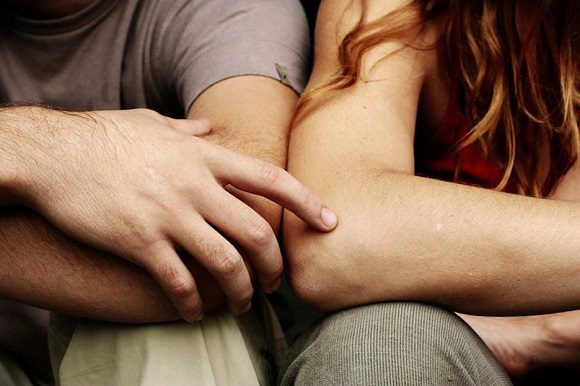
There are as many ways to love as there are people and heartbeats in the world. Photo: Elisa Mendes / Cultura Inquieta
Although the exceptional circumstances caused by COVID-19 mean that we cannot yet do as many things as we want to do, that we cannot yet kiss and touch and embrace as we used to and as we will do again, that cannot stop us from continuing to love.
There are as many ways of loving as there are people and heartbeats in the world. But immersed in a pandemic of perimetralized provinces, of physical and emotional safety distance or of norms and fears, we are forced to relate to each other as we have never done before.
The world has become confined in every sense, but we continue to love seamlessly as best we know and can, with memories and imaginary embraces. We feel that, paradoxically, we are farther and closer than ever to those or that we love.
How are we feeling love? How is it saving us in this difficult journey? Is love the most resistant and mutable feeling in the universe? To think about these questions, Cultura Inquieta leaves us this selection of photographs.
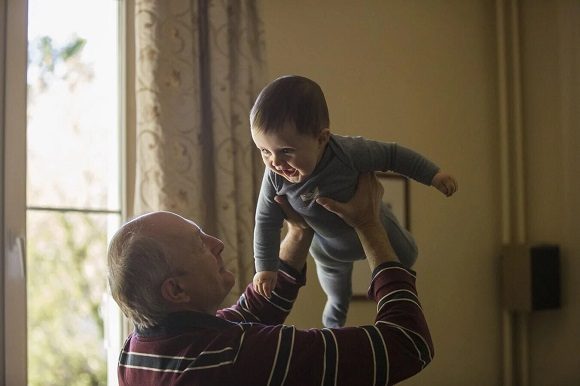
How are we feeling the love? Photo: Jonnhy Cohen / Unsplash
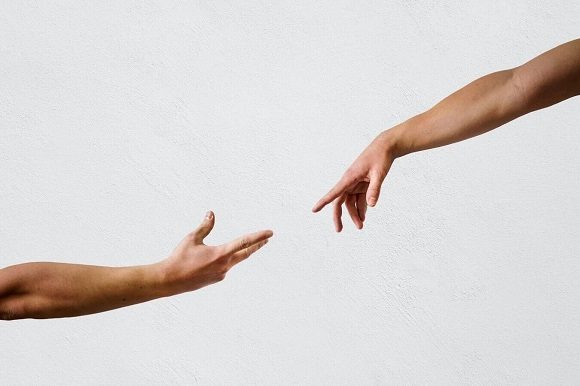
We feel that, paradoxically, we are farther and closer than ever to those or that we love. Photo: Sebastian Dimitru / Unsplash
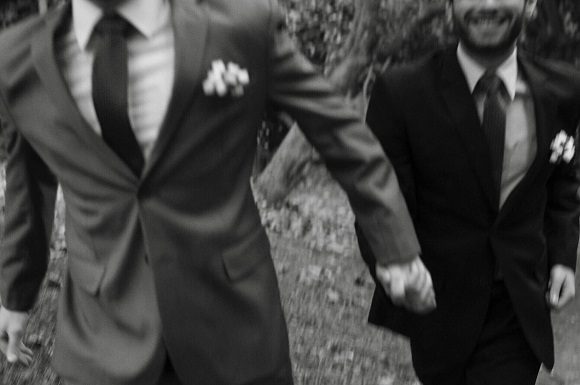
But immersed in a pandemic of perimetralized provinces, of physical and emotional safety distance or of norms and fears, we are forced to relate to each other as never before. Photo: Maico Pererira / Cultura Inquieta
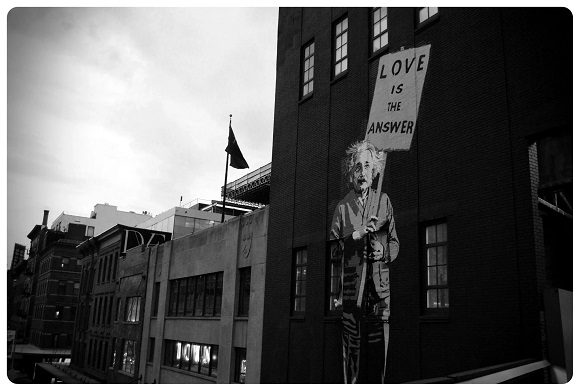
In what way are you saving us in this difficult journey? Photo: Cultura Inquieta
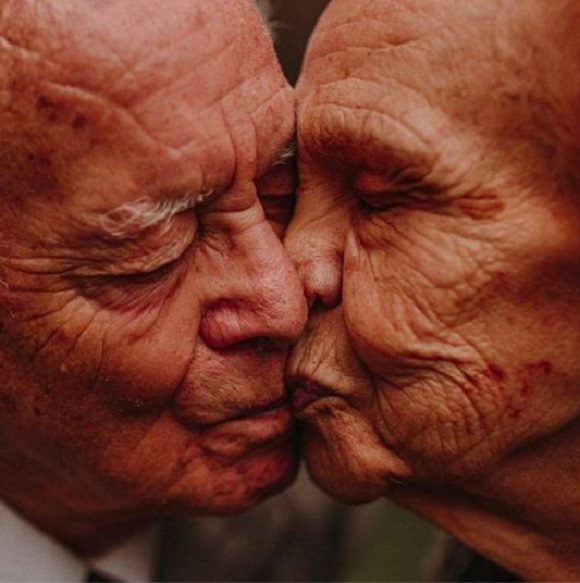
The world has become confined in every sense, but we continue to love seamlessly as best we know and can, with memories and imaginary embraces. Photo: Pablo Beglez / Cultura Inquieta
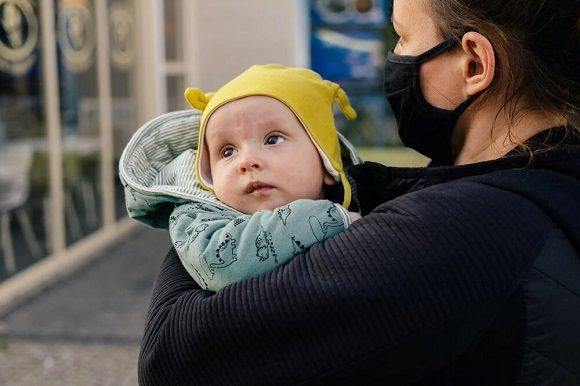
But immersed in a pandemic of perimetrical provinces, of physical and emotional safety distance or of norms and fears, we are forced to relate to each other as never before.Photo: Marcin Jokwiack / Unsplash
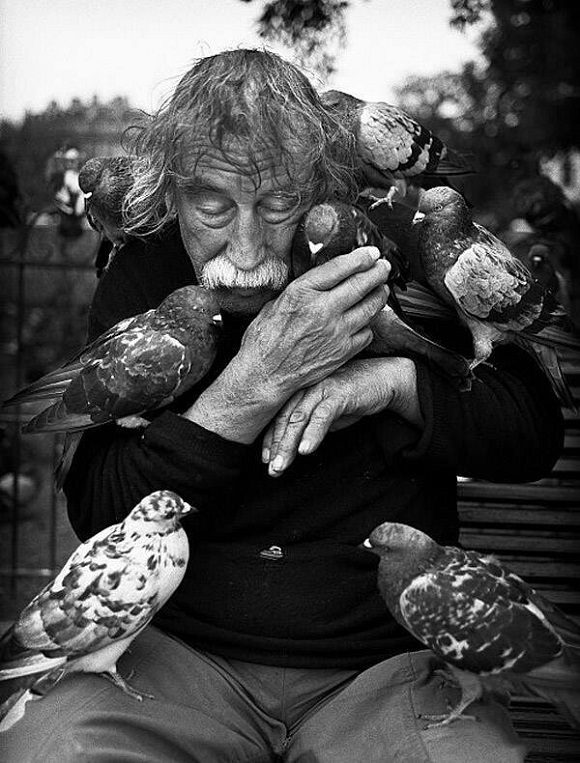
We feel that, paradoxically, we are farther and closer than ever to those we love. Photo: Pierre Belhassen
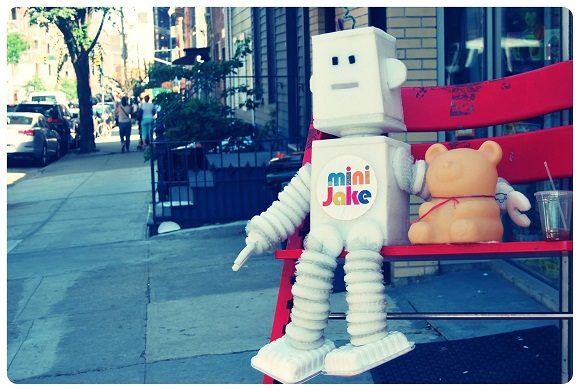
But immersed in a pandemic of perimetrical provinces, of physical and emotional safety distance or of norms and fears, we are forced to relate to each other as never before. Photo: Cultura Inquieta
The VIII Congress of the PCC: Possible Scenarios
Translated and edited by Walter Lippmann for CubaNews. Finally, after two months without any official mention, the announcement was made confirming the holding of the VIII Congress of the Communist Party of Cuba (PCC) on April 16-19, coinciding with the 60th anniversary of the proclamation of the socialist character of the revolution and the victory of Playa Giron (Bay of Pigs). Quite a few Party militants and foreign observers on the subject harbored doubts as to whether or not such a congress should be held in the current conditions of economic, social and political crisis Cuba is going through. Not a few insisted that the most important thing now is to overcome as far as possible the major crisis and leave the formalities of the congress for a major. But, something symptomatic indicated that the congress would certainly be held: the prominent and sustained manner during several days in the Cuban official media about the holding of the Congress of the Communist Party of Vietnam (PCV), highlighting in these reports the reelection of the first secretary, the election of a new Politburo with many new figures and the impulse to the redesign of its economic model of changes and reforms known as Doi Moi. Such informative coverage fit perfectly as an introduction to the holding of the VIII Congress of the Cuban Communists. And the other “letter of introduction” to the congress, was the announcements of revision and critical rectification of the first steps (especially in matters of extreme shortages, prices, salaries, monetary unification plus corruption, monetary unification, plus corruption and “kickbacks” that have unleashed a tremendous wave of unrest and discontent) linked to the implementation of the so-called “Ordinance”. These were accompanied by the much delayed green light for the promotion of micro and small enterprises, abandoning the old limit of 127 occupations for a horizon of no less than 2000 occupations, the most important announcement in the matter of very late and always postponed reforms. With these “letters of introduction” a certain guessing game becomes necessary, that which they call possible scenarios and hypotheses, which we will be able to see in the unfolding of this next congress. The most positive scenario would be: —Definitive retirement of the last leaders of the so-called “historic generation,” well into their 80’s and approaching their 90’s, headed by Raul Castro and Jose Ramon Machado Ventura. This withdrawal could have a compensatory formula similar to the one carried out by the Vietnamese a few years ago when they withdrew their “historical leaders” but keeping them in a sort of advisory council, more symbolic than effective. —Expansion of economic reforms involving the redefinition of areas such as property, limiting the State to “the fundamental means of production” (as the great majority of the best economists in the country have been demanding for many years) and substantially increasing foreign investment [“inversión extranjera” or “EI”] in a direct and mixed manner at a much more accelerated and flexible pace. —The land must return to its original principle: to the one who works it, converting the current tenants into owners and “freeing” the agricultural cooperatives from the constant interference and suffocation by state regulations in their work and commercialization (end of Acopio). Full independence for them. —A possible, and more functional, reduction of the institutional and bureaucratic apparatus, be it the Political Bureau, the Secretariat, the Council of State, the Executive Committee, the National Assembly (one of the most numerous in the world and which barely functions six days a year). The National Assembly should function as a permanent body. —The changes and reforms adopted so far are presented as starting points for a more effective deepening of the redesign of the model. —Such changes should lead to a significant reduction of unrest and discontent if they imply a significant improvement in the current levels of crisis of the model, which is perceived as the turning point towards effective recovery horizons. Such a scenario would also have a positive impact on the international interlocutors most closely related to Cuba, laying the foundations for a better image and greater attractiveness. The less positive scenario —Extend the terms of the “historic generation,” introducing only minor changes in the composition of the leadership at the highest levels. —Maintain restrictive foreign investment schemes. —Maintaining the heavy burden of party and state apparatuses. —The adoption of very limited “patches” to the Ordinance. —The changes made so far are presented as the culmination of the reforms. —If this less positive scenario prevails, it will be yet another congress without any transcendence, except that of prolonging and worsening the present levels of crisis mentioned above. In the international arena, the image it would project would be particularly negative and very unattractive to more constructive levels of association. As for possible changes in figures, the following can be pointed out: —Effective retirement of the most important leaders of the “historic generation,” headed by Raúl Castro and Machado Ventura in their 80s and not a few approaching their 90s. —For the leadership of the Party, Miguel Díaz-Canel -current president (59)- should take over as First Secretary and most likely as Second Secretary Lázaro Expósito Canto (65), the most recognized and efficient provincial secretary of the Party (Santiago de Cuba). —To replace Díaz-Canel in the presidency, the most suitable candidate -with more political-diplomatic stature and experience- would be Bruno Rodríguez Parrilla (62), current Foreign Minister, with General Luis Alberto Rodríguez López-Calleja (59), executive director of the holding company known as GAESA, as probable vice-president due to his experience in the economic field and with broad international experience. In his absence, the engineer Inés María Chapman Waugh, favorably noted for her economic management in the field of water resources. Then comes the question: Who would assume the position of Foreign Minister? The two most likely candidates: Vice Minister Rogelio Sierra, especially for his experience in the field of relations with respect to Latin America and the Caribbean or José Ramón Cabañas could also be considered, given his extensive experience in relations with the U.S. and Canada. —Another variant to the above would be to appoint the current Vice-President and Minister of Economy and Planning, Alejandro Gil Fernandez (54), as second to Rodriguez Parrilla, considering his proven experience in promoting the current changes, with Luis Alberto Rodriguez Lopez-Callejas assuming his position. —It is no less important to take a no less speculative look at the current commanders of the FAR. The “historical” division generals in their 80s and some approaching their 90s, such as Ramiro Valdés Menéndez (88), vice-president Samuel Rodiles (89), President of the Institute of Physical Planning, Ramón Espinosa Martín, Vice-Minister of the FAR; Joaquín Quintas Solá (83), Leop[oldo Cintra Frías (80), the current minister of the FAR. They could be relieved by the so-called “generation of Africans” due to their military missions in Africa and who today are in their 60s and some of them are already entering their 70s. They could be division and brigade generals such as Onelio Aguilera (62), chief of the Western Army; Rafael Hernández (71, who is black), chief of the Eastern Army; Raúl Rodríguez Lobaina (71, also black), chief of the Central Army and the recently appointed Minister of the Interior, Lázaro A. Alvarez CaSAS (57), former vice-minister of the MININT. For Minister of the FAR, the most likely candidate is Raul Castro’s favorite and current Vice Minister of the FAR, Alvaro Lopez Miera (77). But ultimately, the most essential thing will not be the movement of leaders and commanders, but the policy designs towards a positive change or to continue clinging to the provenly inoperative model that still prevails.
Finalmente, luego de dos meses sin referencia oficial alguna, se conoció el anuncio ratificando la celebración del VIII Congreso del Partido Comunista de Cuba en los dias 16-19 de Abril, coincidiendo con el 60 aniversario de la proclamación del carácter socialista de la revolución y la victoria de Playa Girón (Bahía de Cochinos). No pocos militantes del Partido y observadores extranjeros del tema, albergaban dudas sobre la conveniencia o no de celebrarse semejante congreso en las condiciones actuales de crisis económica, social y política por las que atraviesa Cuba. No pocos insistían en que lo primordial ahora es superar dentro de lo posible la mayor dicha crisis y dejar las formalidades del congreso para un major. Pero, algo sintomático indicó que con toda seguridad se celebraría el congreso: la manera destacada y sostenida durante varios dias en los medios ofciales de información cubanos acerca de la celebración del Congreso del Partido Comunista de Viet Nam (PCV), destacándose en esas informaciones la reelección del primer secretario, la elección de un nuevo Politburo con muchas figuras nuevas y el impulso al rediseño de su modelo económico de cambios y reformas conocido como Doi Moi. Semejante cobertura informativa encajaba perfectamente como introducción a la celebración del VIII Congreso de los comunistas cubanos. Y la otra “carta de introducción” al congreso, eran los anuncios de revisión y rectificación crítica de los primeros pasos (sobre todo en materia de carencias extremas, precios, salarios, unificación monetaria más corrupción y “mordidas” que han desatado una tremenda ola de malestar y descontento) vinculados con la puesta en práctica del llamado Ordenamiento y acompañado por la muy demorada luz verde para el fomento de las micro y pequeñas empresas, abandonando el viejo límite de las 127 ocupaciones por un horizonte de no menos de 2000 ocupaciones, el más importante anuncio en materia de reformas bien tardías y siempre aplazadas. Con estas “cartas de introducción” se hace necesario un cierto juego de adivinanzas, eso que llaman posibles escenarios e hipótesis, que podremos ver en el desenvolvimiento de este próximo congreso. El escenario más positivo sería: —Retiro definitivo de los últimos dirigentes de la llamada “generación histórica,” bien entrados en los 80 y acercándose a los 90, encabezada por Raúl Castro y José Ramón Machado Ventura. Este retiro pudiera tener una fórmula compensatoria similar a la realizada por los vientamitas años atrás cuando retiraron a sus “históricos” pero conservándolos en una suerte de consejo consultivo, más simbólico que efectivo. —Ampliación de las reformas económicas que supongan la redefinición de las áreas de propiedad, limitándose el Estado a “los medios fundamentales de producción” (como han venido reclamando la gran mayoría de los mejores economistas del país desde hace muchos años) e incrementar sustancialmente la IE de manera directa y mixta a un ritmo mucho más acelerado y flexible. —La tierra debe volver a su principio original: al que la trabaja, convirtiéndose los arrendatarios actuales en propietarios y “liberar” las cooperativas agrícolas de la constante injerencia y asfixia de parte de las regulaciones estatales en su quehacer y comercialización (fin de Acopio). Plena independencia para las mismas. —Una posible, y más funcional, reducción del aparataje institucional y burocrático sea el Buró Político, el Secretariado, el Consejo de Estado, el Comité Ejecutivo, la Asamblea Nacional (una de las más numerosas del mundo y que apenas funciona seis dias al año). La Asamblea Nacional debe funcionar como órgano permanente. —Los cambios y reformas adoptados hasta ahora se presentan como puntos de partida para una profundización más efectiva del rediseño del modelo. —Semejantes cambios deberán producir una sensible disminución del malestar y descontento si los mismos suponen una sensible mejoría en los actuales niveles de crisis del modelo, que sea percibido como el punto de viraje hacia horizontes de recuperación efectiva. Semejante escenario supondría además un impacto positivo en los interlocutores internacionales más relacionados con el tema de Cuba, sentando las bases de una mejor imagen y mayores atractivos. El scenario menos positive —Prolongar los mandatos de la “generación histórica,” introduciendo sólo cambios menores en la composición de la dirigencia a los más altos niveles. —Mantener los esquemas restrictivos a la IE. —Mantener la pesada carga del aparataje partidista y estatal. —La adopción de muy limitados “parches” al Ordenamiento. —Se presentan los cambios efectuados hasta ahora como culminación de las y final de las reformas. —De prevalecer este escenario menos positivo, será otro congreso más sin trascendencia alguna, salvo la de prolongar y agudizar los presentes niveles de crisis antes apuntados. En el orden internacional, la imagen que proyectaría sería particularmente negativa y muy poco atractiva a niveles de asociación más constructivos. En cuanto a posibles cambios de figuras, se pueden señalar los siguientes: —Retiro efectivo de los más importantes dirigentes de la “generación histórica,” encabezados por Raúl Castro y Machado Ventura en sus 80 y no pocos acercándose a los 90. —Para la dirección del Partido, deberá asumir como Primer Secretario Miguel Díaz-Canel -actual presidente (59)- y como Segundo Secretario más probable Lázaro Expósito Canto (65), el más reconocido y eficiente secretario provincial del Partido (Santiago de Cuba). —Para reemplazar a Díaz-Canel en la presidencia el candidato más idóneo -con más estatura política-diplomática y experiencia- sería Bruno Rodríguez Parrilla (62), actual Ministro de Relaciones Exteriores, teniendo como vice-presidente probable por su experiencia en el campo económico y con amplia experiencia internacional al General Luis Alberto Rodríguez López-Calleja (59), director ejecutivo del holding conocido como GAESA, o en su defecto a la ingeniera Inés María Chapman Waugh, destacada favorablemente por su gestión económica en el campo de los recursos hidraúlicos. Viene entonces la pregunta: ¿Quién asumiría la posición de canciller? Los dos candidatos más probables: el Vice Ministro Rogelio Sierra, sobre todo por su experiencia en el campo de las relaciones con respecto a América Latina y el Caribe o también pudiera considerarse a José Ramón Cabañas, dada su extensa experiencia en las relaciones con EEUU y Canadá. —Otra variante a la anterior sería la de nombrar al actual Vice-Presidente y Ministro de Economía y Planificación, Alejandro Gil Fernández (54), como segundo de Rodríguez Parrilla, considerando su probada experiencia en el impulso a los cambios actuales, asumiendo su cargo Luis Alberto Rodríguez López-Callejas. —No menos importante es echar un vistazo no menos especulativo a los mandos actuales de las FAR. Los generales de division “históricos” en sus 80 y algunos acercándose a los 90 como Ramiro Valdés Menéndez (88), vice-presidente Samuel Rodiles (89), Presidente del Instituto de Planificación Física, Ramón Espinosa Martín, Vice-Ministro de las FAR; Joaquín Quintas Solá (83), Leop[oldo Cintra Frías (80), ministro actual de las FAR. Podrán ser relevados por la llamada “generación de los africanos” por sus misiones militares en Africa y que hoy están en sus 60 y tanto y algunos ya entrando en los 70. Ellos podrán ser los generales de division y brigada como Onelio Aguilera (62), jefe del Ejército Occidental; Rafael Hernández (71, negro), Jefe del Ejército Oriental; Raúl Rodríguez Lobaina (71, negro), Jefe de Ejército Central y el recién designado Ministro del Interior, Lázaro A. Alvarez CaSAS (57), ex viceministro del MININT. Para Ministro de las FAR lo más seguro es que sea el favorito de Raúl Castro y actual Vice Inistro Priumero de las FAR, Alvaro López Miera (77). Pero en última instancia lo más esencial no será el movimiento de drigientes y mandos, sino los diseños de política hacia un viraje positivo o continuar aferrados al modelo probadamente inoperante que todavía prevalece.
The VIII Congress of the PCC: Possible Scenarios
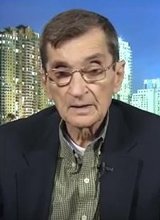 by Domingo Amuchastegui
by Domingo Amuchastegui
February 12, 2021
Received from the author by email.VIII CONGRESO DEL PCC: POSIBLES ESCENARIOS
 Por Domingo Amuchastegui
Por Domingo Amuchastegui
12de febrero 2021
Recibido del autor por correo electrónico.
Activities where self-employment is not allowed.

Download in PDF, list of activities where self-employment is not allowed.
February 10, 2021
Translated and edited by Walter Lippmann for CubaNews.
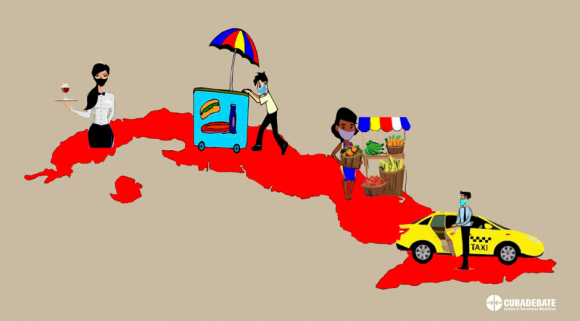 The National Classification of Economic Activities (CNAE), is integrated in 4 levels of aggregation that are distributed in 21 sections identified by an alphabetical code of one letter, subdivided in turn in 87 divisions, 237 groups, 421 classes, that in total contain 2 thousand 110 activities, limiting totally or partially some of these structures, or only certain activities, that the proposal proposes to limit 124 of them.
The National Classification of Economic Activities (CNAE), is integrated in 4 levels of aggregation that are distributed in 21 sections identified by an alphabetical code of one letter, subdivided in turn in 87 divisions, 237 groups, 421 classes, that in total contain 2 thousand 110 activities, limiting totally or partially some of these structures, or only certain activities, that the proposal proposes to limit 124 of them.
The list does not include activities considered illegal for all economic actors or expressly prohibited by law, such as: hunting and fishing of prohibited and endangered species, exploitation of endemic plants, child labor and forced labor, among others.
Download the list of activities where self-employment is not allowed (PDF 153 KB) (in Spanish)
http://media.cubadebate.cu/wp-content/uploads/2021/02/Anexo-No-1.pdf
A Guantanamero with Marie Curie

A Guantanamero who worked with Marie Curie
In 1925 he became the first Latin American to graduate as a specialist in Radiology and Radiodiagnosis. In 1927, at the age of 26, he graduated as Doctor of Medicine at La Sorbonne.
Date: December 15, 2012
Translated and edited by Walter Lippmann for CubaNews.
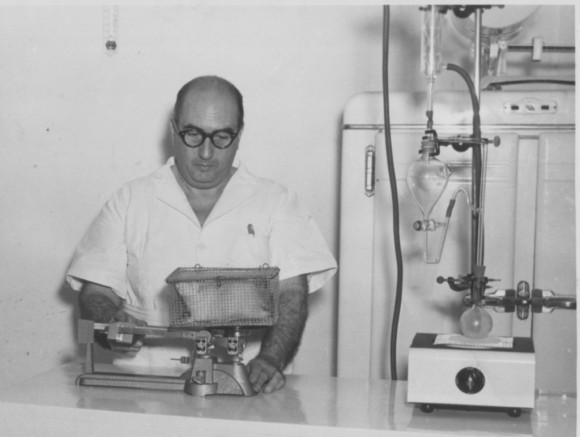
Julio Jané. In 1925 he became the first Latin American to graduate as a specialist in Radiology and Radiodiagnosis. In 1927, at the age of 26, he graduated as Doctor of Medicine at the Sorbonne.
Julio Jané. In 1925 he became the first Latin American to graduate as a specialist in Radiology and Radiodiagnosis. In 1927, at the age of 26, he graduated as Doctor of Medicine at the Sorbonne.[/caption]
One hundred and eleven years ago, a series of events took place in Cuba worthy of being engraved in that book of yesterday that is our national memory.
Did you ask for examples? Well, here are just a handful of them.
In that already remote 1901, Ñico Saquito, Luis Marquetti and Rafael Cueto were born to Cuban music. The National Library is founded. Havana joins the number of cities in the world that have streetcars.
Yellow fever is drastically reduced, thanks to the application of the theory enunciated by the Camagüeyan genius Carlos J. Finlay.
Meanwhile, in the southeast of Cuba, in the Villa del Guaso, on October 22, 1901, a certain couple -formed by the doctor in pharmacy Mr. Pablo Jané Trocné and his cousin Julia Jané Escobedo- is giving birth to a child. An apparently irrelevant fact, but which would later prove its transcendence.
THE CAREER OF AN ILLUSTRIOUS CUBAN
Yes, when the twentieth century was dawning, the Jané-Jané family of Guantanamo had a child, who they named Julio. Twenty-seven years later, we will find him as an assistant to that glory of world science, the Polish Marie Curie -born Marja Sklodowska-, at the Rhodium Institute in Paris. For several years he would assist in their research -until the death of the scientist- to that pinnacle of knowledge.
Julio Jané graduated in Medicine at the universities of La Sorbonne and Havana. He passed his residency exams at the French Croix Saint Simon Anti-Cancer Center (1923). In 1925 he became the first Latin American specialist in Radiology and Radiodiagnosis. Two years later, he was nominated to become the director of the surgical services of the Anti-Cancer Center of the Lariboisière Hospital in Paris.
Among many other qualifications, he obtained a degree as a nuclear energy technician from the Institute of Nuclear Studies based in Oak Ridge, Tennessee, the place in the United States where the atomic bomb was developed. He already enjoyed renown in the world scientific world, and was not lacking in offers in Paris, which he turned down to work in his country.
A PIONEER
Armed with his talent and the solid preparation he had acquired, Julio Jané was a pioneer in science in Cuba, where he returned in 1937.
Here he put electrology to work in rehabilitation and physiotherapy. His experiments created a novel method to diagnose cancer, and he was involved in the application of ultrasound, when this resource was still in its infancy. He worked successfully in the rehabilitation of polio patients and was a sworn enemy of invasive techniques.
In El Vedado he gave life to the Electrotherapy and Radiotherapy Center. He contributed to the founding of the Radium Institute, attached to the Reina Mercedes Hospital, while at the same time he received offers to work in Barcelona or New York.
Jané collaborated with the American atomic physicist Paul C. Aebersold (1910-1967), one of the greats in the peaceful applications of nuclear science. He shared with Dr. Aebersold sympathy for the nascent Cuban revolution. Perhaps this explains why the American died, under strange circumstances, falling from a skyscraper, a fact that the American special services wanted to show as a suicide, caused by psychic imbalance.
Dr. Julio Jané was not only a leading scientist, but also a man of high civic virtue.
His deep-rooted friendship with Eduardo Chibás, with whom he shared dreams of popular improvement, was no coincidence. (When the Orthodoxo leader was wounded by his own hand, Jané was prevented from being part of the medical board that discussed the case. This refusal led many to believe that a conspiracy had taken the leader’s life).
In the midst of the official indifference to health, he gave public talks in the university Plaza Cadenas, in order to instruct the people medically. Such action would be described as subversive by the henchmen of Fulgencio Batista’s dictatorship.
Concerned about agriculture and popular food, he advocated the conservation of food by means of radiation, because, he said, “we sow to rot”.
He declared war on transnational companies that added carcinogenic substances to food.
Batista – a usurper in power – tried to develop a nuclear project and a congress on that matter, which were not going to be anything more than masquerades. Jané opposed this “and, supported by scientists of solid prestige, among them Dr. Aebersold, managed to frustrate the political attempts.
This Guantanamero descendant of Mambises, great for his brain and his heart, was an unconditional supporter of his homeland until August 8, 1973, when he went down to the grave in the Pantheon of the Revolutionary Armed Forces.
It has been said about Dr. Julio Jané that he did not value the Hippocratic Code as a cold mandate, much less as a text of professional formality and vague importance -only useful for quoting it in speeches-, but that he assumed it as a vital commitment.
(Taken from Cubahora)
Preventing Gender Violence

Preventing Gender Violence: An End to Breaking the Silence with Unexcused Looks
 By Paquita Armas Fonseca, a Cuban journalist specialized in cultural issues. She is a regular contributor to Cubadebate and other digital media such as La Jiribilla, CubaSi and the Cuban Television Portal. She was director of El Caimán Barbudo.
By Paquita Armas Fonseca, a Cuban journalist specialized in cultural issues. She is a regular contributor to Cubadebate and other digital media such as La Jiribilla, CubaSi and the Cuban Television Portal. She was director of El Caimán Barbudo.
February 4, 2021
Translated and edited by Walter Lippmann for CubaNews.
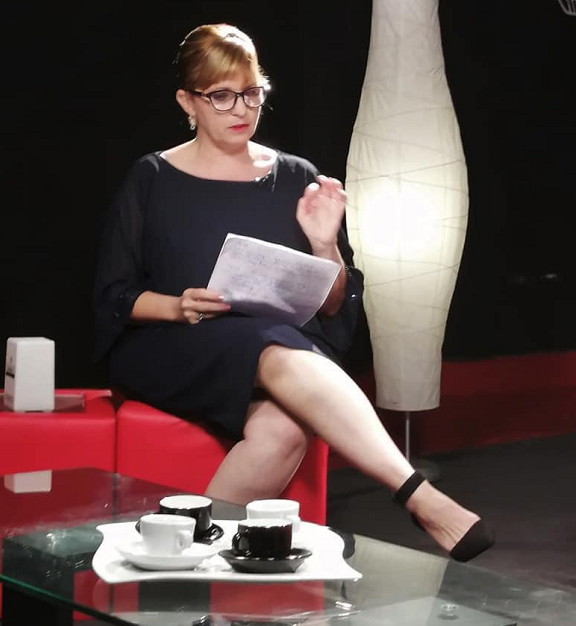
Beatriz Torres Rodríguez is the Bety who once a week has been talking about Sexuality and daily life for 20 years. Photo: TVC Portal.
Degree in Psychology, PhD in Psychological Sciences, Master in Sexuality and Sexuality Pedagogy, Professor and Senior Researcher, President of the Cuban Multidisciplinary Society for the Study of Sexuality (SOCUMES). Beatriz Torres Rodriguez is the Bety who once a week has been talking about Sexuality and daily life for 20 years, first on CHTV and then on Canal Habana.
That has been one of her jobs as a communicator, she has had others (you will find them in this text) and soon she will be the host of Miradas sin excusas, a magazine that will precede the awaited series Rompiendo el silencio (Breaking the Silence). “The panels do not comment on the chapters of the serial, but make reflections and look for alternatives and turning points to prevent gender violence to give alternatives for coping with it” stresses this charismatic psychologist:
-Why Psychology? Is there a gene in the family?
When choosing a career as a teenager, generally as in my case, there is no effective professional orientation, but I have always been a passionate reader and lover of cinema and I was attracted by the characteristics of the characters, how they faced conflicts, how there could be different alternative solutions, which not only depended on the environment in which people developed, among other elements and that approached the studies, which I later learned, were the components of the psychological framework. Also, because from what I knew was a helping profession, at that time with the vision of patients with psychiatric disorders, which constituted and constitute for me a great mystery, despite the years of professional practice.
There is no specialist in my family related to this science.
-Why sexology?
Since I was a student at the Psychology Department of the University of Havana, I became interested in this subject and received extracurricular courses given by what was at that time the National Group for Sex Education. At the same time, I began my professional practice in a Mental Health Center, and I saw how mental health disorders, whether the most complex and chronic or the most acute, mostly have an impact on sexuality and life as a couple, at different ages of life, which leads to present, from discomfort related to this area, to disorders, with a great burden of suffering in most cases.
This was later enriched by working at the Center for Medical and Surgical Research, where I expanded my diapason to the accompaniment and treatment of patients with chronic diseases, especially non-communicable diseases such as diabetes, hypertension and chronic kidney disease among others and the impact they have on sexuality, not only because of the disease itself, but also because of all the stigmas and prejudices of the patient himself, the couple, the team of professionals and society, mostly due to the lack of knowledge or undervaluation of these issues and the impact they have on the welfare of people regardless of the disease they have.
For ten years I have been the president of the Cuban Multidisciplinary Society for the Study of Sexuality (SOCUMES), one of its multiple lines of research is precisely gender violence.
In recent years I have also participated in counseling for women in situations of gender violence, where the implications are very marked in their sexuality, self-esteem and well-being, among others. In other words, for me it is an area of knowledge of great need and sensitivity and that, in our culture, since it is considered by the majority of the population as a private matter, people delay a lot in asking for help and in some cases do not do it at all.
-Where and when did you start as a communicator?
I started in 2000 on TV in CHTV, in its magazine, with the session Sexuality and daily life, with journalist Dianik Flores, a session that I later continued in Canal Habana, since its foundation 15 years ago, together with a group of prestigious directors and hosts such as Sandra, Magdiel and the entire production team, which has allowed me to grow as a person and as a professional and a systematic dialogue with viewers, because I keep a space within the session to answer them, based on the questions of the topics presented in the space. This exchange has been very enriching and I have been given alternatives of help or orientation to different services in the cases I require. Hearing, analyzing and learning from other colleagues whom I admire and who also have their section in the Magazine, has been very useful for me.
I have participated in other TV programs, such as El triángulo de la confianza, De tarde en casa, Entre tú y yo and Pasaje a lo desconocido, among others.
In addition, since 2005 and for several years, I developed in the newspaper Trabajadores a digital consultation on sexuality in their health page. The session was called “Let’s talk about sexuality”, which for years was a very interesting experience, receiving various questions from people of different ages, marital status, schooling, even from other countries, which allowed me to get feedback on the issues that most often concerned the population about sexuality and life as a couple and that many did not dare to raise, neither to their own partners, nor in the space of consultation, so we could see the usefulness of this space. I would like to acknowledge the collaboration of the journalist Carmen Alfonso, in charge of this health page.
I have seen the importance of communication on these issues in the media, since it allows a large group in the population to become aware, reflect and learn. At the same time, as a specialist, it has helped me to be aware of what concerns the population the most, in order to be able to offer help alternatives.
-Have you taken a speech course?
In 2008-2009, together with other specialists in charge of sessions at Canal Habana and a group of journalists, I took a speech course, which was very useful and a necessary learning experience.
-How long did you prepare for this job?
I was invited to be the host or moderator of the panels of specialists of the magazine Miradas sin excusas, before the presentation of the chapters of the serial Rompiendo el silencio. Although the preparation time was short, we had the necessary and deep table work, both with its director and screenwriter Elena Palacios, Altair Reyes, the head of production and advisor Karina Paz, magnificent professionals, with whom we developed an excellent teamwork.
In addition, for some years, I have had an approach from the research with the problems related to gender violence, I was one of the coordinators of the Consensus of Gender Violence, organized in 2018 by SOCUMES and in the meetings of researchers in gender violence, organized by the Oscar Arnulfo Romero Center. For the last 5 years, we have jointly organized a colloquium on this topic. For three years I have been part of the counseling team for women in situations of gender violence in this institution. All this has made it easier for me to raise awareness and deepen my knowledge of these issues.
-What topics will be discussed?
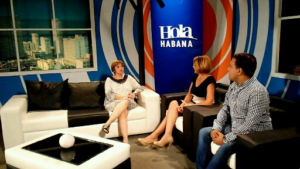
Photo: TVC Portal.
It is a specialized magazine of analysis of the different expressions of gender violence, which will serve as a framework for the two seasons of the series Breaking the Silence. It tells the stories of women and girls in situations of violence, in its different forms of presentation, from the most recognized and obvious, such as physical violence and sexual abuse, to the more subtle, but no less serious, such as psychological and other types of violence. In its second season, it expands and diversifies to other forms of violence, such as violence against men. There is a representation of the different contexts where it can occur, such as the family, the couple, school, work, among others.
Its first season was intentionally broadcast in early December 2016, in the framework of the Day for Non-Violence against Women and Girls. For the first time, a national teleseries addressed this issue of gender violence as a central axis, which continues in its second season as a common thread.
The themes of this second season are related to:
Sexual violence against girls, adolescents and adult women in its different forms of expression.
The consequences of gender violence affect the main victims (women), but also the rest of the family members and the perpetrators themselves.
One of the consequences of GBV is the reproduction of violence, particularly for women in the double condition of victim-victimizer.
Symbolic violence that uses women’s bodies to exercise control.
Gender violence towards homosexual men, homophobia, transphobia, paternity and homosexuality.
Child abuse.
Rape within the family.
Violence between men.
Stories of characters with their conflicts, limited situations and responses to them are presented, with the aim of provoking recognition, analysis and awareness of this phenomenon of gender violence.
-Could you comment on the specialists?
The panels were composed of specialists from different fields of knowledge, who had two characteristics in common:
They were experts in their fields of knowledge and in issues related to GBV.
They are very sensitive to these issues.
We had 58 appearances, according to the characteristics of the topics, there were experts who participated in more than one panel on several occasions. Psychologists, Sociologists, Jurists, Journalists, Anthropologists, Pedagogues, Doctors, Historians, Filmmakers, Communicators and Photography Professionals, among others, were represented. Teamwork was achieved and the most important thing, in my opinion, is that we sought to enlighten the population on these issues, to see the signs of GBV, its causes, repercussions in the family, society, the different alternatives to face it and where to find turning points in the different situations that arise, in order not to reproduce violence and, most importantly, to prevent it.
-Any recommendations for viewers?
Not to be alarmed by these issues, since the important thing is to recognize the different forms of GBV, and that this is a social problem of such importance, that to stop at the number, or if it is more or less frequent, is not the essential thing, but if a single woman, girl or any person is in these situations, it deserves all our effort and attention. The most important thing is to PREVENT, so that GBV and any form of violence does not become naturalized. Hence the political will of our country and its institutions to achieve an effective, comprehensive and integrated response. This magazine is part of this effort, of the many that are needed.
The FMC, together with other institutions, is leading this strategy, which is already showing signs such as the helpline and the Women’s Advancement Program, among others.
-Is there anything I haven’t asked you or anything you’d also like to say?
Finally, I would like to thank once again the entire team of the magazine and Ms. Mareleen Díaz Tenorio, with whom we had a systematic exchange during the entire filming process, since she was the capable advisor of the series Breaking the Silence.
(Taken from TVC’s website)
Subscribe to Blog via Email
| M | T | W | T | F | S | S |
|---|---|---|---|---|---|---|
| 1 | ||||||
| 2 | 3 | 4 | 5 | 6 | 7 | 8 |
| 9 | 10 | 11 | 12 | 13 | 14 | 15 |
| 16 | 17 | 18 | 19 | 20 | 21 | 22 |
| 23 | 24 | 25 | 26 | 27 | 28 | |



You must be logged in to post a comment.